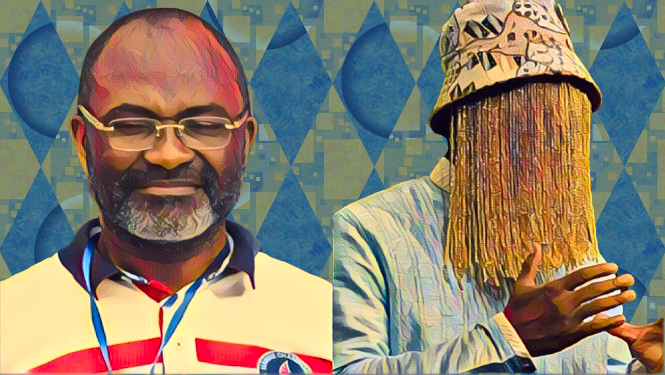In a notable legal development, the Supreme Court of Ghana has ruled against Anas Aremeyaw Anas, a renowned undercover journalist, in his bid to overturn a High Court decision that dismissed his defamation lawsuit against Kennedy Ohene Agyapong, the Member of Parliament for Assin Central. The apex court’s decision, handed down on 28 February 2024, marks a significant moment in Ghana’s legal history, particularly in the realms of free speech, journalism, and political accountability.
Anas Aremeyaw Anas, celebrated for his investigative journalism that often involves hidden identity and undercover tactics, had initially taken legal action against Kennedy Agyapong following allegations made by the MP that were deemed defamatory. Agyapong, known for his vociferous and no-holds-barred style, had accused Anas of engaging in unethical practices, including blackmail, under the guise of investigative journalism. These accusations were aired publicly, leading Anas to seek redress in the courts for what he considered damaging and unfounded claims.
Myjoyonline stated that the case, which has captivated public attention, took a decisive turn when, on 15 March 2023, Justice Eric Baah of the Accra High Court ruled against Anas. The judge stated that although the accusations made by Agyapong were severe and potentially defamatory, Anas failed to provide sufficient proof to support his claims. In a striking statement, Justice Baah described Anas’s actions not as investigative journalism but as “investigative terrorism,” a characterization that has sparked widespread debate about the methods and ethics of undercover journalism. The High Court’s decision included a GH¢50,000 cost awarded against Anas.
Dissatisfied with this outcome, Anas sought to have the High Court’s judgment quashed by the Supreme Court on grounds including an alleged lack of jurisdiction and a purported bias on the part of Justice Baah. However, the Supreme Court, in a closely split 3-2 decision led by Chief Justice Gertrude Sackey Torkornoo, dismissed Anas’s certiorari application. The majority ruling sided with the High Court’s findings, while Justices Issifu Omoro Tanko Amadu and Emmanuel Yonny Kulendi offered dissenting opinions.
The Supreme Court’s refusal to award costs against Anas, despite a request from Agyapong’s legal team, was a notable aspect of the ruling. This decision underlines the complex nature of the case, which involves not only the legal standing of the claims and defenses but also broader questions about the balance between freedom of expression and the responsibilities of the press.
This legal saga between Anas Aremeyaw Anas and Kennedy Ohene Agyapong underscores the challenges and controversies that can arise when the aggressive pursuit of accountability through journalism clashes with the reputations and careers of public figures. The case has sparked significant debate within Ghanaian society about the limits of investigative journalism, the protection against defamation, and the role of the judiciary in mediating such disputes.
As the dust settles on this high-profile case, the ramifications for journalism, legal standards for defamation, and political discourse in Ghana are likely to be felt for years to come. The Supreme Court’s decision serves as a precedent in defining the boundaries of journalistic practice and political speech, highlighting the delicate balance between uncovering truth and protecting individual reputations. The outcome of this case may well prompt a reevaluation of both legal strategies and journalistic ethics in the context of Ghana’s vibrant democratic landscape.





1 comment
I don’t think the title of your article matches the content lol. Just kidding, mainly because I had some doubts after reading the article.